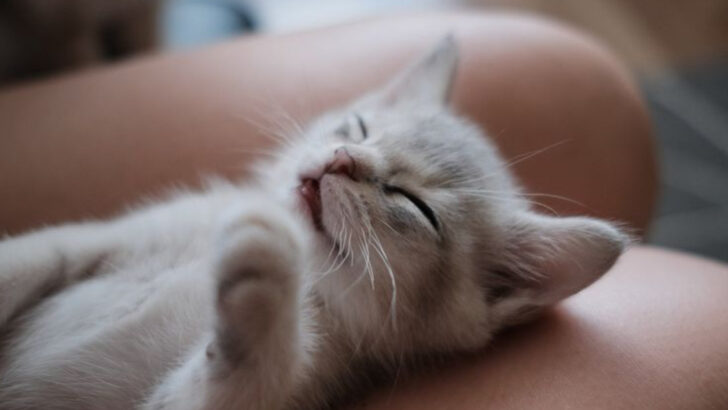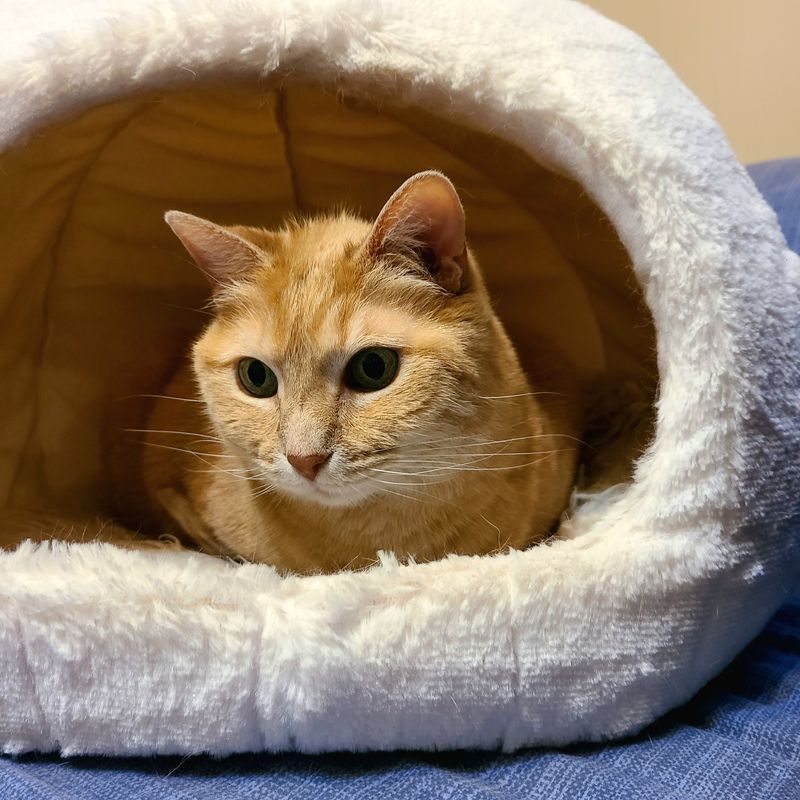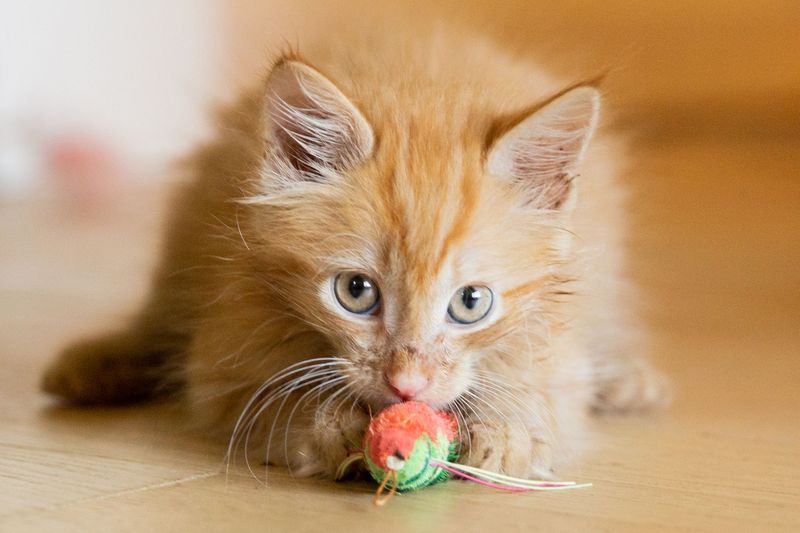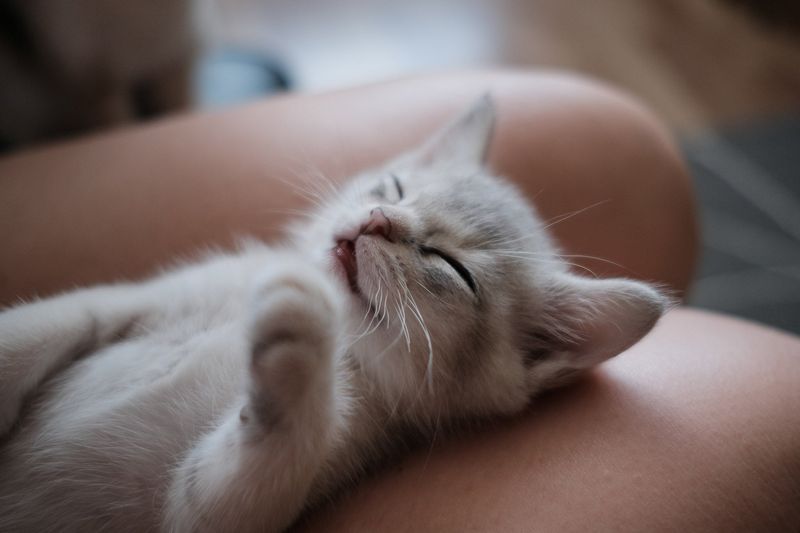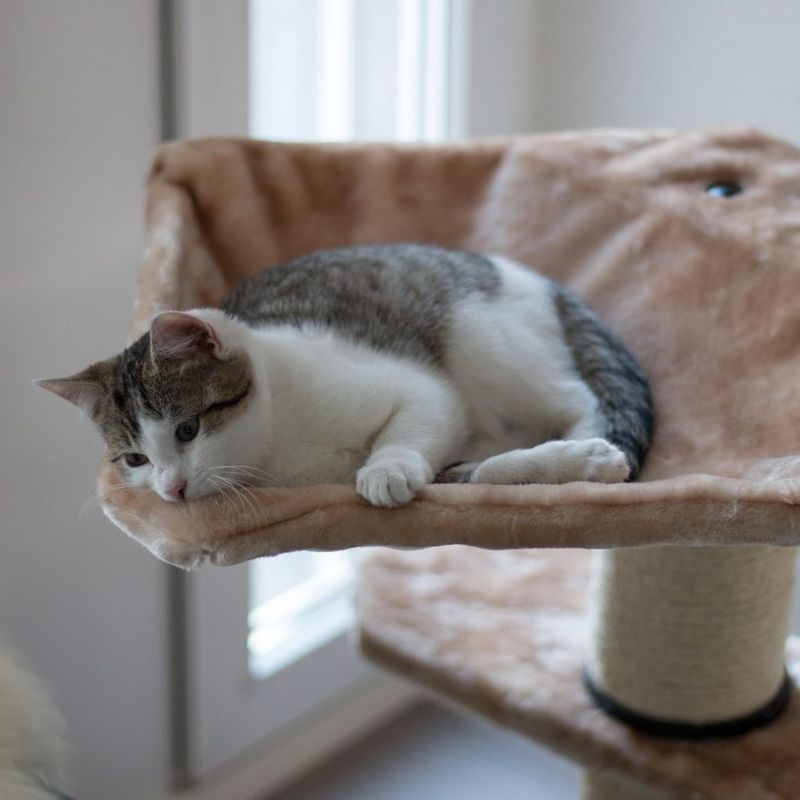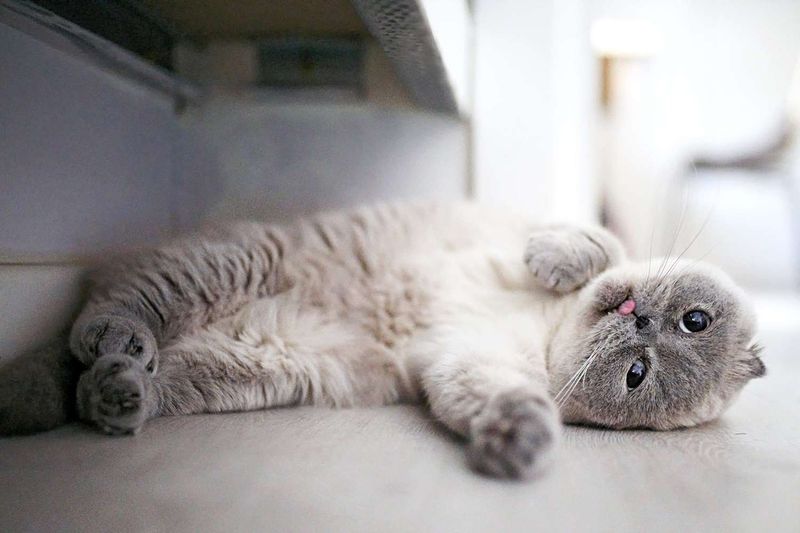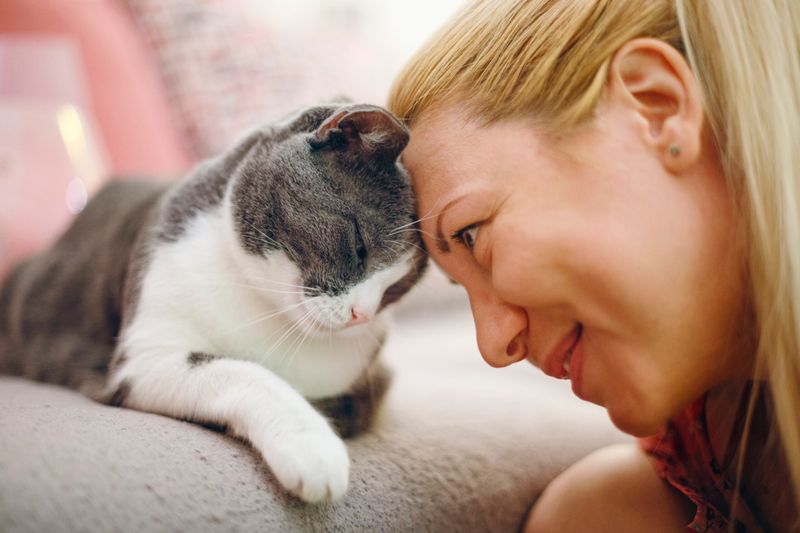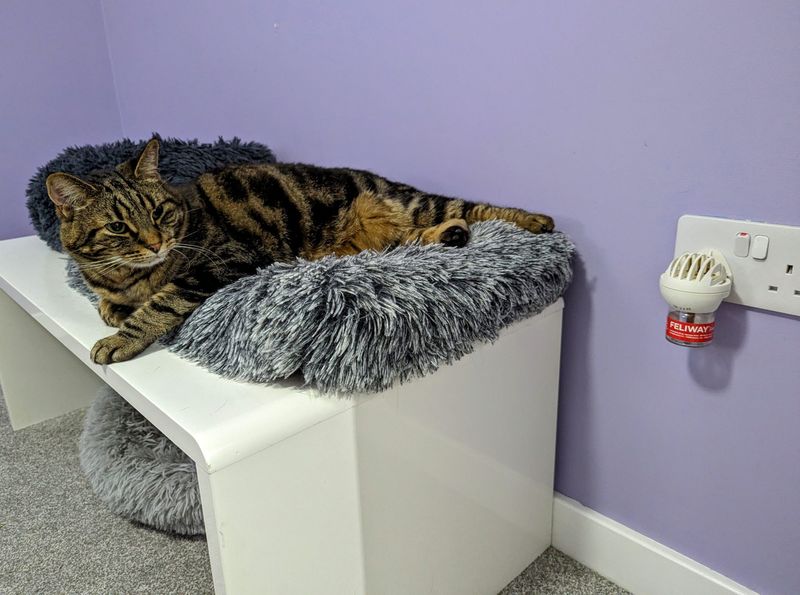Whether they’re triggered or prone to anxiety attacks, cats are known to start shivering and shaking, meowing and growling, as well as scratching and urinating on the furniture when they’re anxious. We’re pretty sure that settles the “Are cats and humans alike?” question to a tee.
Now, anxiety affects humans and cats differently.
When you notice your cat getting anxious, you might notice her getting triggered by things you wouldn’t necessarily deem as triggers – be it buying new furniture, moving the food bowl from one corner of the room to the other, or even playing a song that she doesn’t like.
What do you do when you notice a change in your cat’s behavior, though? We’re bringing you everything you need to know down below!
1. Identify the Triggers

First things first, figure out what’s triggering your cat’s stress and anxiety. Maybe she is scared of your neighbor’s dogs and starts shivering and shaking every time she catches a glimpse of them or hears them bark outside the window.
Perhaps she’s stressed out because all of a sudden, you’re working from home rather than going to work every single day (yes, that’s a thing!). When you determine what’s bothering her, you’re going to have a better chance of removing the triggers or training her to become more confident and courageous.
2. Reduce or Desensitize the Triggers
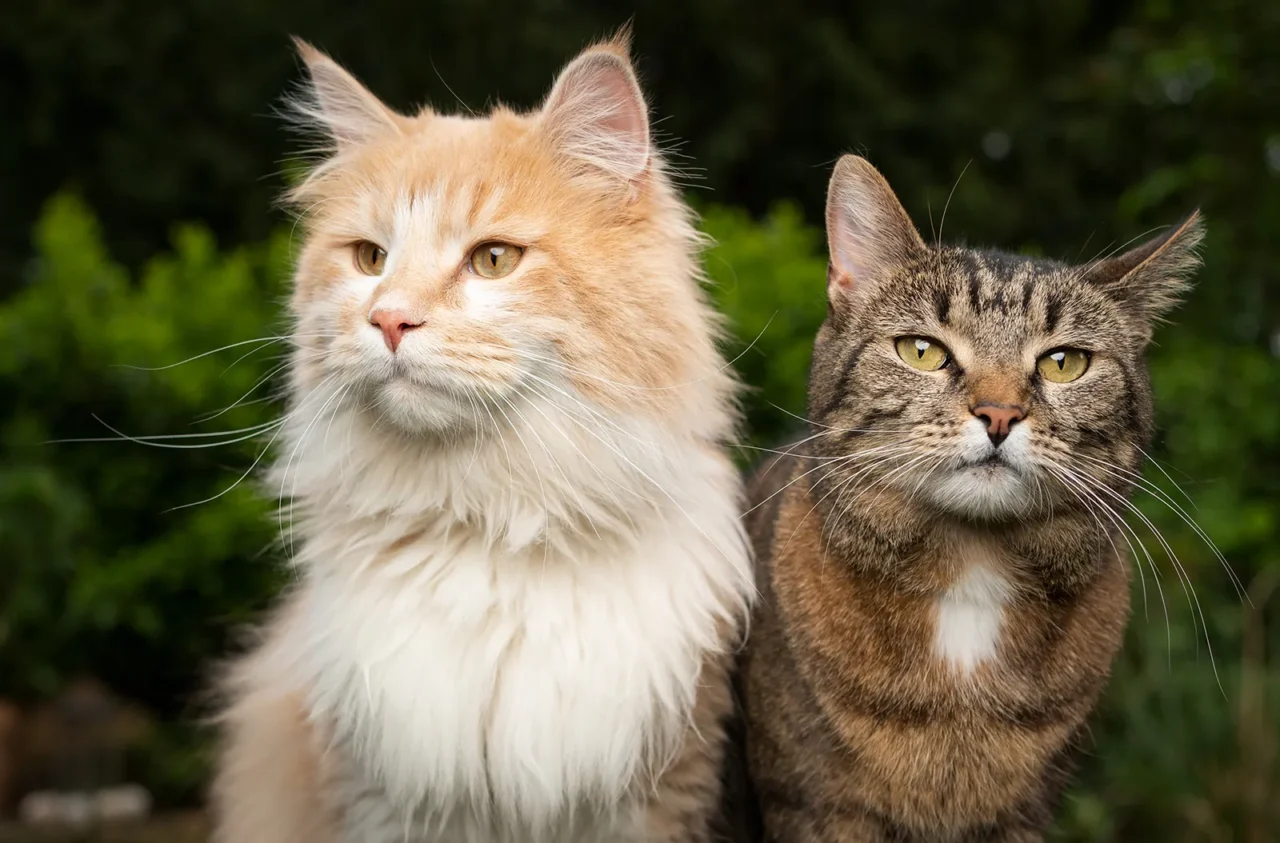
Once you’ve established your cat’s triggers, you need to remove them or work on getting her more comfortable around them – the outcome depends on whether or not your cat’s triggered by something you can remove.
On one hand, you can easily keep your neighbor’s dogs away from your cat, sway your cat’s attention away from the dogs when they’re barking, or entertain her whenever they’re trying to get her to hop on the window. On the other, you can’t get your guests to leave early because they’re stressing your cat out, or get your children to stop playing with noisy toys because they’re bothering her when she’s trying to sleep. But, you can teach her to become more comfortable around other people, children, and animals.
3. Alter Her Environment

We know you might be thinking “What does her environment have to do with the fact that our neighbor’s dogs keep on barking!?” Here’s the thing, cats have different triggers which you might or might not be able to remove right away. However, when you make sure to have your cat entertained at all times, chances are she’s going to be too distracted to be triggered by whatever is bugging her.
How do you do that, though? Provide her with a bunch of scratching posts, climbing posts, stimulating toys, and comfortable retreats, and observe how much happier and healthier she gets with each day.
4. Provide Positive Reinforcement
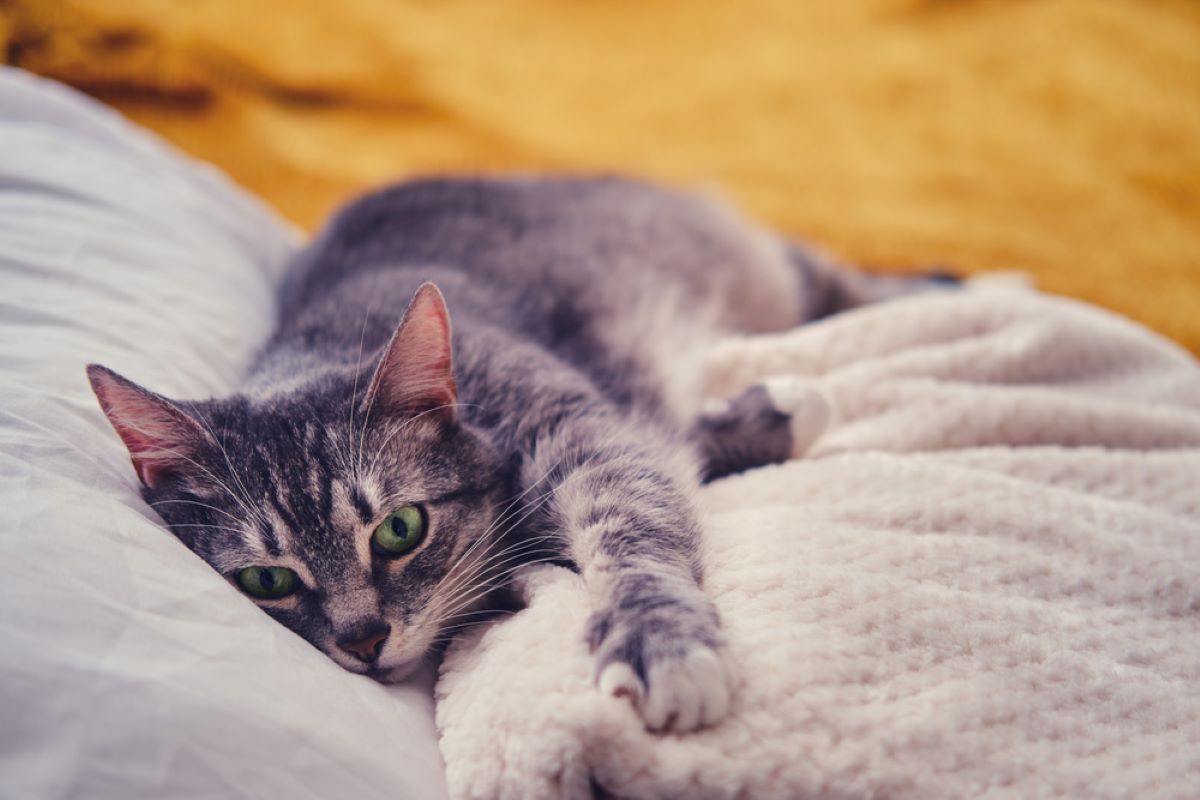
What are we referring to when we’re discussing positive and negative behaviors, though? When your cat gets stressed out and anxious, she resorts to some pattern of behavior that’s specific to her – whether she starts meowing your ears off, urinating on the floor, or running around like a headless chicken.
Sure, these patterns of behavior are a response to a trigger. But, they may be even more damaging to your cat than the anxiety itself. When you notice your cat resorting to negative patterns of behavior, offer her a positive alternative. Cuddle her, play with her, or offer her a treat. Soon, she’s going to start drawing connections between her triggers and the treats you’ve been offering her. Speaking of which…
5. Offer Treats During Stressful Moments
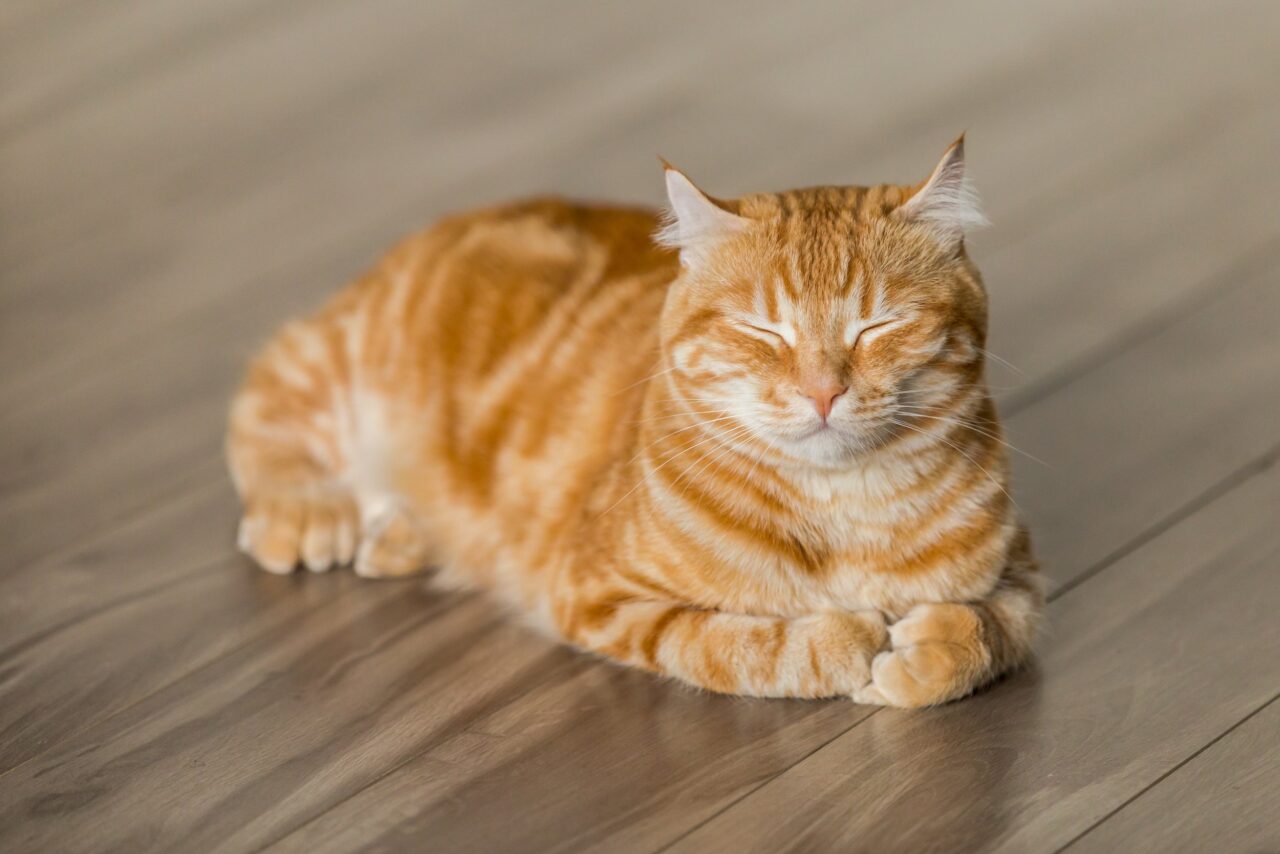
Treats are one of the biggest and best ways to sway your cat’s attention to something she appreciates rather than hates. And, when you offer your cat a treat when she’s scared, stressed out, or anxious, you’re doing much more than distracting her. Right off the bat, you’re teaching her that you’re there for her whenever she’s scared. Other than that, you’re teaching her that her triggers don’t have to generate something negative.
On the contrary, when she hears the neighbor’s dogs barking, she’s going to get a treat. When she hears the children playing outside, she’s going to get a treat. When she sees the guests at the door, she’s going to get a treat. In essence, you’re promoting a positive reaction to a negative trigger. Just make sure you don’t overfeed her, though!
6. Try Pheromone Therapy
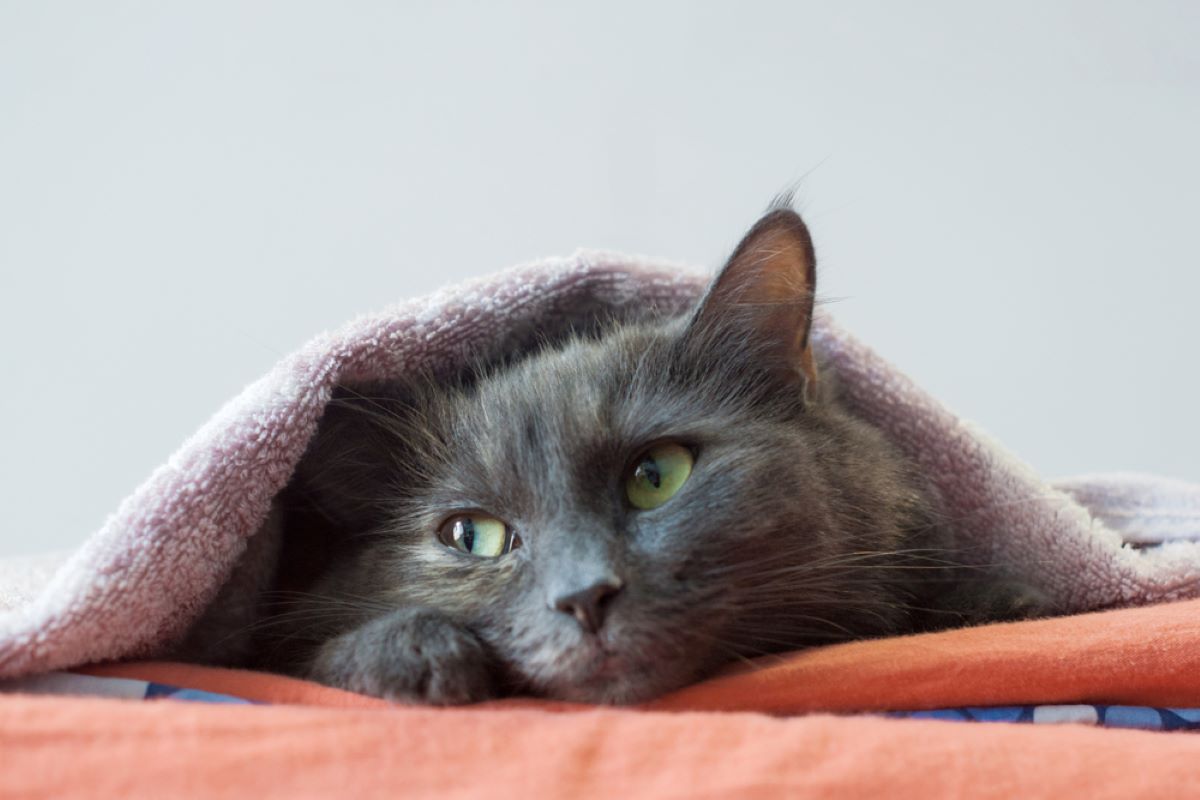
If you’re at your wit’s end and nothing else seems to be helping, you might want to consider pheromone therapy. While getting rid of the triggers, entertaining her, distracting her, and offering her treats might be a great way to stop some of the negative behavior patterns, you might need to resort to pheromone therapy, nonetheless.
Pheromone therapy sounds serious, but you don’t need to do anything other than get your hands on synthetic pheromone sprays, wipes, or even diffusers and use them around your cat. Synthetic pheromones mimic your cat’s pheromones and make her happier, calmer, and safer.
7. Use Catnip as a Calming Alternative

Now, synthetic pheromones might not be right for everyone (even though they’re not dangerous whatsoever). But you can always resort to catnip as an alternative to pheromone therapy because catnip’s been known to produce the same (or similar) effect.
Catnip is completely natural, easy to get your hands on, and easy to serve to your cat. Cats adore rolling on catnip, rubbing themselves against it, sniffing it, and even eating it. Munching on catnip might make your cat mellow and sleepy, but there’s nothing wrong with that, either.
8. Consult a Vet About Prescription Anxiety Medication

If your cat’s anxiety is severe or persistent, consulting a veterinarian about prescription anxiety medication may be a helpful option. A vet can evaluate your cat’s specific symptoms and recommend a medication that could help manage her stress levels.
Prescription medications are often used when other strategies, like environmental changes or behavioral modifications, aren’t enough to ease the anxiety. These medications can work by calming the nervous system, helping your cat feel more relaxed and comfortable in everyday situations.
9. Create a Safe, Quiet Space
Creating a safe corner for your cat can significantly reduce anxiety. Choose a calm corner in your home where your cat can retreat without being disturbed by loud noises or high traffic. This sanctuary should include a soft blanket or bed where your cat can relax comfortably.
Incorporate some of her favorite toys to make the area appealing. Avoid placing the space near windows with high external noise or areas with frequent human activity. A quiet environment helps your cat feel secure and in control, reducing stress levels.
10. Play and Engage with Her
To reduce anxiety, make time for interactive play with your cat every day. Using toys such as feather wands or laser pointers encourages physical activity and mental engagement. This can greatly help alleviate her stress levels.
Playtime is especially important for indoor cats who may not have the opportunity to explore the outdoors. Remember to rotate toys regularly to keep her interest alive. Providing consistent interaction can help your cat trust you more and feel less anxious in her environment.
11. Establish a Routine
A routine is essential for your cat’s well-being. Establishing a consistent schedule for meals, play, and rest helps reduce anxiety. Try to maintain regular feeding times and consistent play and grooming activities.
Routines provide a sense of security, making your cat feel more at home. When changes are unavoidable, try to keep disturbances to a minimum and gradually introduce new routines. This consistency helps your cat anticipate daily events, reducing the stress of uncertainty.
12. Provide Vertical Spaces
Vertical spaces are a great way to boost your cat’s confidence and ease anxiety. Install cat trees or shelves where she can climb and survey her surroundings. High vantage points provide a sense of safety, control, and allow her to escape if she feels overwhelmed.
Ensure these spaces are stable and accessible, offering her a secure perch. Adding vertical spaces not only enriches her environment but also provides an outlet for natural climbing instincts, reducing stress and anxiety.
13. Offer Soft, Soothing Music
Music can have a calming effect on cats, just as it does on humans. Play soft, soothing music, like classical or nature sounds, during times of stress or when you’re away. This auditory environment can help mask external noises that may cause anxiety.
Associating music with peaceful times can condition your cat to feel relaxed whenever she hears it. However, ensure the volume is low to avoid further stress. Providing this calm background can help your cat feel more at ease in her surroundings.
14. Spend Time with Her
Spending quality time with your cat can greatly alleviate anxiety. Simple activities like sitting together, gentle petting, or just being nearby can offer reassurance. Your presence provides a calming influence, helping her feel safe and loved.
Be patient and allow her to approach you on her terms. Avoid forcing interaction as it may increase anxiety. Consistent affection and attention can strengthen your bond and reduce her stress, creating a more harmonious environment.
15. Use Calming Products
Various products are available to help calm anxious cats. Consider using pheromone diffusers, sprays, or calming treats designed specifically for feline well-being. These products mimic natural calming scents, helping to reduce stress-related behaviors.
Introduce these products gradually to observe how she responds. Every cat is unique, so it may take some time to find what works best. These tools can be particularly beneficial during stressful events, such as moving or introducing new pets. They provide an extra layer of comfort, aiding in anxiety reduction.
